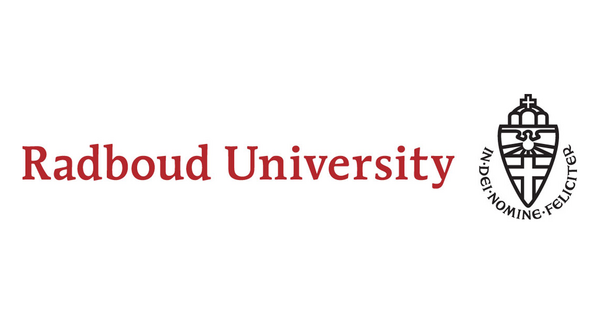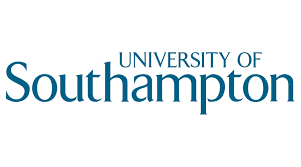Snabbfakta
-
- Nijmegen
- Heltid
- Rekrytering
Kategorier:
- Datavetenskap
- Psykologi
Titlar:
- Doktorand
Ansök senast: 2024-05-15
PhD Candidate: Visual Perception and Decision-Making
JOB DESCRIPTION
A PhD position is available in Dr Janneke Jehee's lab at the Donders Institute for Brain, Cognition and Behaviour. You will work on studies of visual decision-making, sensory uncertainty, and decision confidence. Research methods include computational modelling, brain imaging (fMRI, MEG), machine learning, behavioural methods, and other techniques.
Virtually every decision we make comes with a sense of confidence – a subjective estimate of decision accuracy. Confidence enables us to monitor and judge the quality of our own decisions and adapt our behaviour accordingly. For example, we reduce speed when driving in bad weather because we are less confident about our estimates of the distance to surrounding traffic. But what makes us feel less confident in these conditions? What brain mechanisms underlie this ability? This project will address these and other questions regarding the neural basis of sensory uncertainty and visual decision confidence.
The positions will be affiliated with an international network of nine research labs located throughout Europe. You will receive interdisciplinary training in theories and methods for the study of visual perception, decision-making and confidence. This includes many network-wide events and other international training opportunities.
See this website for more information on the lab’s research questions, style and approach; and see this website for more information about overarching research themes and questions within the wider network.
REQUIREMENTS
- You have a Master's degree (or equivalent) in Psychology, Computer Science, Neuroscience, Physics, Math, or another related field.
- You must comply with the Marie Curie Actions mobility rule: the researcher must not have resided or carried out their main activity (work, studies, etc.) in the country of the beneficiary (in this case: the Netherlands) for more than 12 months in the 36 months immediately before their appointment.
- Prior experience in cognitive neuroscience is strongly preferred.
- Previous experience with computer programming, or other quantitative experience, is strongly preferred.
- Experience with visual psychophysics, neuroimaging, computational modelling, and data analysis is advantageous.
Women and other underrepresented groups are explicitly encouraged to apply. Additional financial support for researchers with families is available. Relocation expenses for moving to the Netherlands will be covered.
CONDITIONS OF EMPLOYMENT
Fixed-term contract: 4-5 years.
- We will give you a temporary employment contract (1.0 FTE) of 1,5 years, after which your performance will be evaluated. If the evaluation is positive, your contract will be extended by 2.5 years (4-year contract).
- You will receive a starting salary of €2,770 gross per month based on a 38-hour working week, which will increase to €3,539 in the fourth year (salary scale P).
- You will receive an 8% holiday allowance and an 8,3% end-of-year bonus.
- You will be able to use our Dual Career and Family Support Service. The Dual Career Programme assists your partner via support, tools, and resources to improve their chances of independently finding employment in the Netherlands. Our Family Support Service helps you and your partner feel welcome and at home by providing customised assistance in navigating local facilities, schools, and amenities. Also take a look at our support for international staff page to discover all our services for international employees.
- You will receive extra days off. With full-time employment, you can choose between 30 or 41 days of annual leave instead of the statutory 20.
Work and science require good employment practices. This is reflected in Radboud University's primary and secondary employment conditions. You can make arrangements for the best possible work-life balance with flexible working hours, various leave arrangements and working from home. You are also able to compose part of your employment conditions yourself, for example, exchange income for extra leave days and receive a reimbursement for your sports subscription. And of course, we offer a good pension plan. You are given plenty of room and responsibility to develop your talents and realise your ambitions. Therefore, we provide various training and development schemes.
DEPARTMENT
The Donders Institute in Nijmegen, Netherlands, is a friendly, collaborative environment, and home to many outstanding researchers from all over the world. The internationally renowned institute currently hosts more than 600 PhD candidates and postdoctoral researchers from more than 45 countries, offering a stimulating, multidisciplinary and highly international research environment. Facilities include high-field 3T and 7T research-dedicated MRI scanners, a 275-channel MEG system, several (MR-compatible) EEG systems, fully equipped behavioural labs, and high-performance computational facilities. The working language of the Donders Institute is English.
ADDITIONAL INFORMATION
Address your letter of application to Dr Janneke Jehee. In the application form, you will find which documents you need to include with your application.
There will be several rounds of interviews. Interview dates will be determined in consultation with shortlisted candidates. You will preferably start your employment as soon as possible.
We can imagine you're curious about our application procedure. It describes what you can expect during the application procedure and how we handle your personal data and internal and external candidates.


